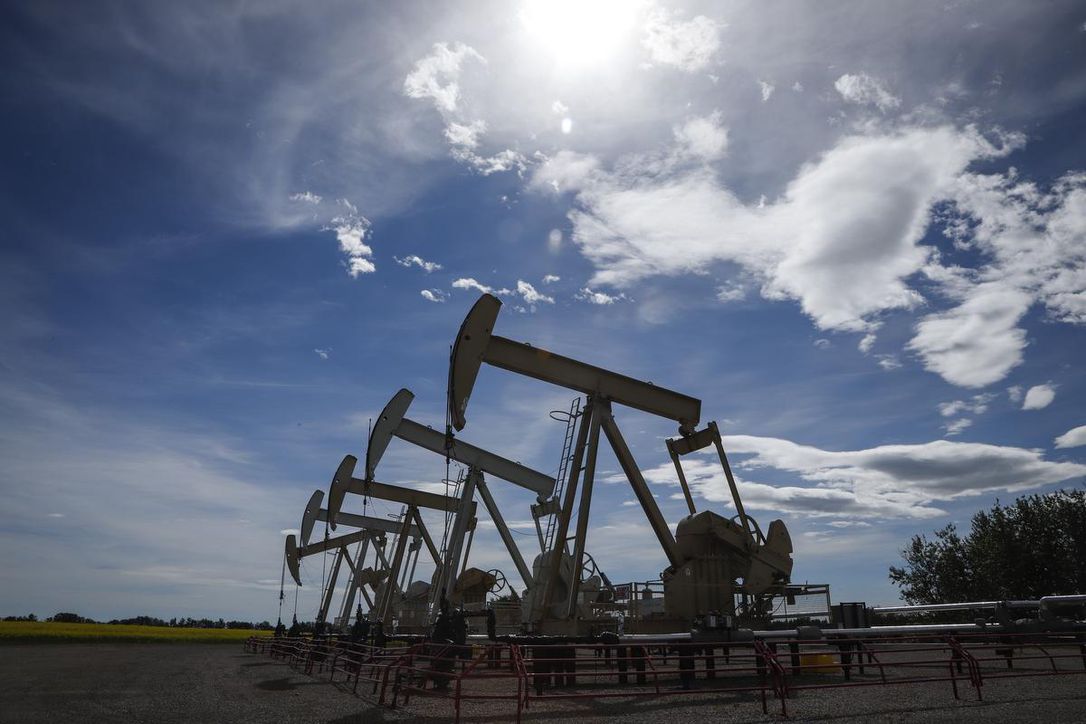11 Dec 2024

Tired Earth
By The Editorial Board

With oil prices flirting with $130 (U.S.) a barrel this week — a stunning increase from $18 (U.S.) a barrel short two years ago — Canadian oil and gas companies have hit a jackpot.
Take, for example, Canadian Natural Resources Ltd. (CNRL), Canada’s largest oil and gas exploration and production company. Calgary-based CNRL, now worth about $90 billion, reported its fourth quarter and full-year financial results for 2021 last week.
For the full year, CNRL made $7.66 billion in profits on $30.1 billion of revenues. And these numbers don’t even reflect the recent surge of more than 50 per cent in oil prices due to the war in Ukraine.
To better understand what the company is planning to do with the windfall of cash, I listened to the 39-minute conference call that CNRL’s executives held with investors and analysts on March 3.
“We will continue to allocate cash flow to maximize value for our shareholders,” CEO Tim McKay told investors. “Returns to shareholders are significant: $2.2 billion in dividends and $1.6 billion in share repurchases for a total of $3.8 billion. And today, our dividend was increased by 28 per cent for the 22nd consecutive year,” the confident CEO added.
For a second I thought that the year was 1980, another year when oil prices were above $100 (U.S.) a barrel. Not only because the active participants in the call were all male executives and analysts, jesting with each other, and the one woman who was part of the call was referred to as “operator,” and not by her name. But mostly, because save a few words about a stewardship report that will be published soon and a couple of general statements — without any figures or concrete plan — on how the company plans to “achieve our goal of net-zero GHG emissions,” the call was all business as usual, as if we weren’t in the midst of a climate crisis.
The entire call was about how strong the firm’s cash flows are, how production is at record levels, how CNRL is delivering massive returns to shareholders, and will continue to do so in the future, allocating even more capital to dividends and share repurchases. Even more telling was the fact that the analysts didn’t have any questions about a transition to a low-carbon economy; nothing about investments in renewable energy; nothing about CNRL’s net-zero commitment.
“I think that there is a bubble in Calgary, where they think that climate change is a PR problem, not an actual business plan issue,” Keith Stewart, senior energy strategist with Greenpeace Canada, tells me in a Zoom interview.
“They just don’t want to change their business model. The CEO of Cenovus Energy said they are going to be an oil company forever,” Stewart adds.
To be fair, after constant pressure on the oil and gas industry, the one thing that CNRL did do, along with Cenovus Energy, ConocoPhillips, Imperial, MEG Energy and Suncor Energy, is to form The Oil Sands Pathways to Net Zero initiative. The six companies — who jointly operate approximately 95 per cent of Canada’s oilsands production — formed an alliance, whose goal is to achieve net zero GHG emissions from the companies’ oilsands operations by 2050.
Chris Severson-Baker, Alberta regional director with Pembina Institute, a non-partisan think tank focused on Canada’s clean energy transition, is one of the co-authors of the recently published report, “Getting on Track,” which evaluates the progress and challenges of the new oilsands net zero initiative.
“It’s a good thing that these companies have made net zero pledges, and it’s good that they identified some specific technologies and solutions that would result in emission reductions. But at the same time, there really is very little happening in the real world in terms of investments by those companies that show that they’re actually implementing the vision,” Severson-Baker tells me in a phone interview.
Moreover, with an estimated cost of the proposed initiative of between $30 to $75 billion, the six companies are lobbying the federal government to support up to 75 per cent of the cost.
“I don’t think that they’ve made a very strong case for why that’s necessary, especially given the revenue that they have available to them,” Severson-Baker adds.
To summarize, we’re at a point in time in which oil and gas companies are making record profits, but instead of using them to make new investments in renewables, and reduce their production of fossil fuels, they pay their shareholders big time. In fact, oilsands companies are not even using the cash to make progress toward their own pledges of net-zero emissions from their operations of what will be still a highly polluting product.
One could have hoped that our fossil fuel companies would seize the opportunity when their stocks are trading at all-time high and actually raise capital in order to finance their transition to a low carbon future. But instead, they shower cash on their shareholders and stick to their plan to squeeze every last drop from their oil reserves.
With no influential activist shareholders to direct the firms in the right direction, it is up to the government to demand that the industry starts its transition, also for the sake of employees who might find themselves unemployed once the demand for oil declines. Putting a cap on fossil fuel production or taxing excess profits unless invested in renewables are a few tools that the government could use.
As Frans Timmermans, executive vice-president for the European Green Deal, said this week: “Let’s dash into renewable energy at lightning speed. Renewables are a cheap, clean and potentially endless source of energy.” If the climate crisis wasn’t enough to understand that, the war in Ukraine only further emphasized the urgency of accelerating our clean energy transition.
Source : thestar.com
Comment